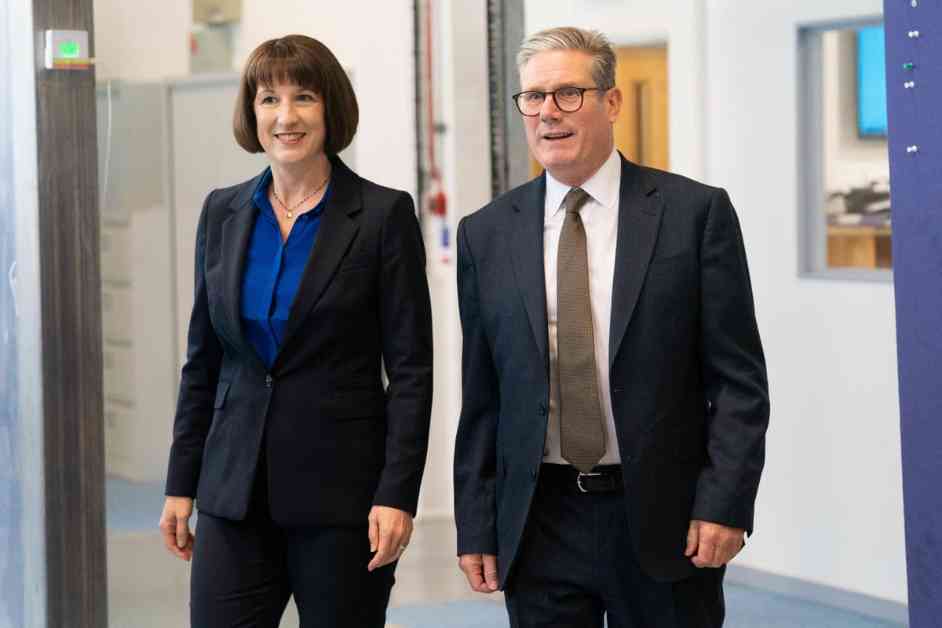Reeves Defends Tough Decisions Amid Labour Winter Fuel Cut Showdown
Prime Minister Keir Starmer and Chancellor of the Exchequer Rachel Reeves recently visited PsiQuantum, the world’s largest quantum company located in Daresbury near Liverpool. This company, backed by £9 million of UK government funding, is focused on research and development to build the world’s first large-scale quantum computer capable of solving complex problems. With access to leading cryogenics experts and a liquid helium cryogenic plant at Sci-tech Daresbury, PsiQuantum is positioned as a key player in advancing quantum technology.
Rachel Reeves, in her first Labour conference speech as Chancellor, emphasized the importance of making tough decisions on public finances to prevent economic ruin. Despite facing criticism for stripping winter fuel payments from 10 million pensioners, Reeves is adamant that there will be no return to austerity. The decision to remove these payments has sparked a heated debate within the Labour party, with major trade unions calling for a reversal of the policy.
Addressing Economic Stability and Ambitions
In her speech, Rachel Reeves highlighted the need for economic stability as a crucial foundation for achieving the country’s ambitions. She stressed the importance of making the right choices now to secure a prosperous future for Britain. Reeves acknowledged the challenges left behind by the Conservative government’s economic legacy but remained optimistic about the opportunities for growth and development.
Reeves reassured Labour members that the upcoming Budget statement on October 30 would uphold the party’s commitment to positive change. She emphasized the role of stability in fostering confidence among businesses and families, laying the groundwork for sustainable growth and prosperity. Despite the need for tough decisions to address the £22 billion “black hole” in public finances, Reeves made it clear that austerity measures would not be reintroduced.
Key Budget Measures and Policy Changes
Rachel Reeves outlined several key measures and policy changes that would be implemented in the upcoming Budget statement. These included a recruitment drive and reforms at HM Revenue and Customs to combat tax evasion, a crackdown on Covid-era contract discrepancies to reclaim funds, and the development of a new industrial strategy with a focus on sustainability. Reeves pledged to maintain current levels of national insurance, income tax, and VAT, providing stability for taxpayers and businesses.
Despite facing backlash for means-testing winter fuel payments for pensioners, Reeves defended the decision as necessary to address the financial challenges facing the country. Unions like Unite and CWU have called for a reversal of this policy, citing concerns about the impact on vulnerable pensioners. However, Reeves stood by the move as a crucial step in addressing the public finance deficit and ensuring fiscal responsibility.
Challenges and Criticisms
While Rachel Reeves sought to strike a balance between economic stability and ambitious growth plans, critics like shadow chancellor Jeremy Hunt raised concerns about the lack of a clear growth strategy. Hunt questioned the effectiveness of potential tax increases and employment laws that could deter investment and job creation. The shadow chancellor warned against undermining the UK’s international reputation by downplaying economic achievements for political gain.
As tensions simmer within the Labour party over contentious policy decisions, including the means-testing of winter fuel payments, the debate is expected to intensify at the party’s conference in Liverpool. Despite calls for a U-turn on certain policies, Reeves remains steadfast in her commitment to steering the country towards a path of sustainable growth and prosperity. The upcoming Budget statement will be a crucial test of her ability to balance economic challenges with ambitious plans for the future.












